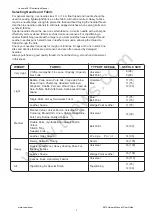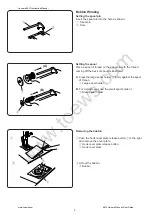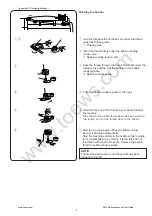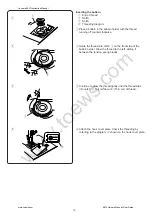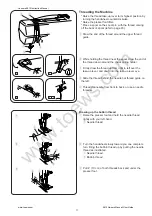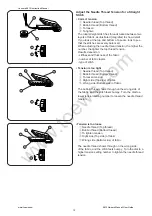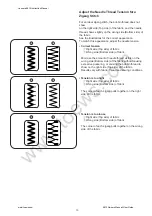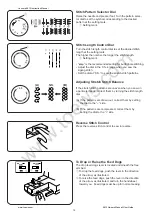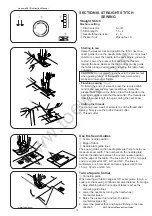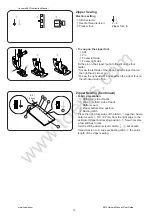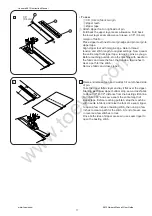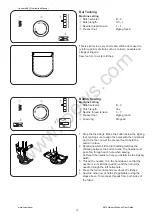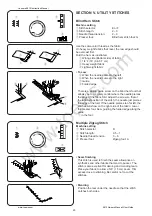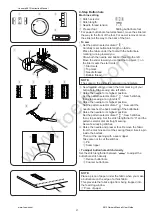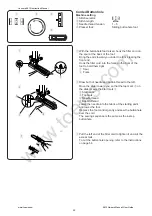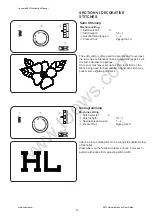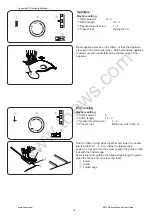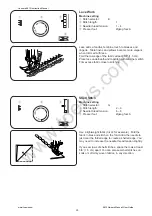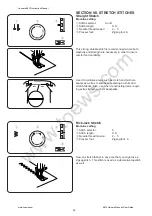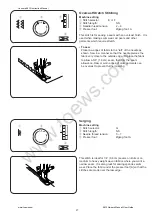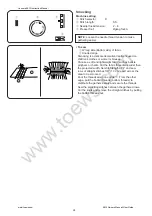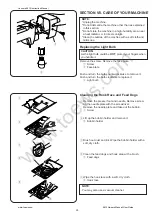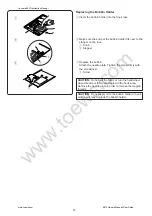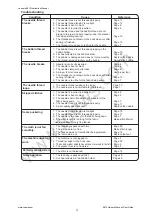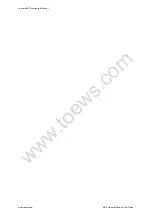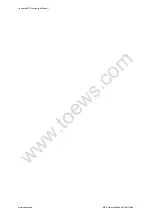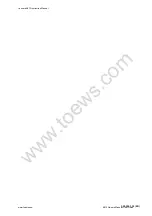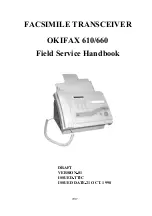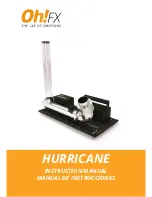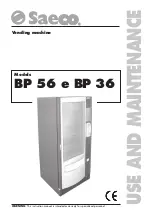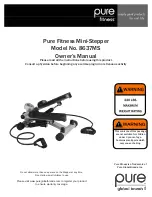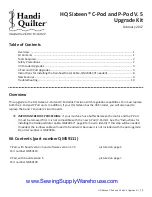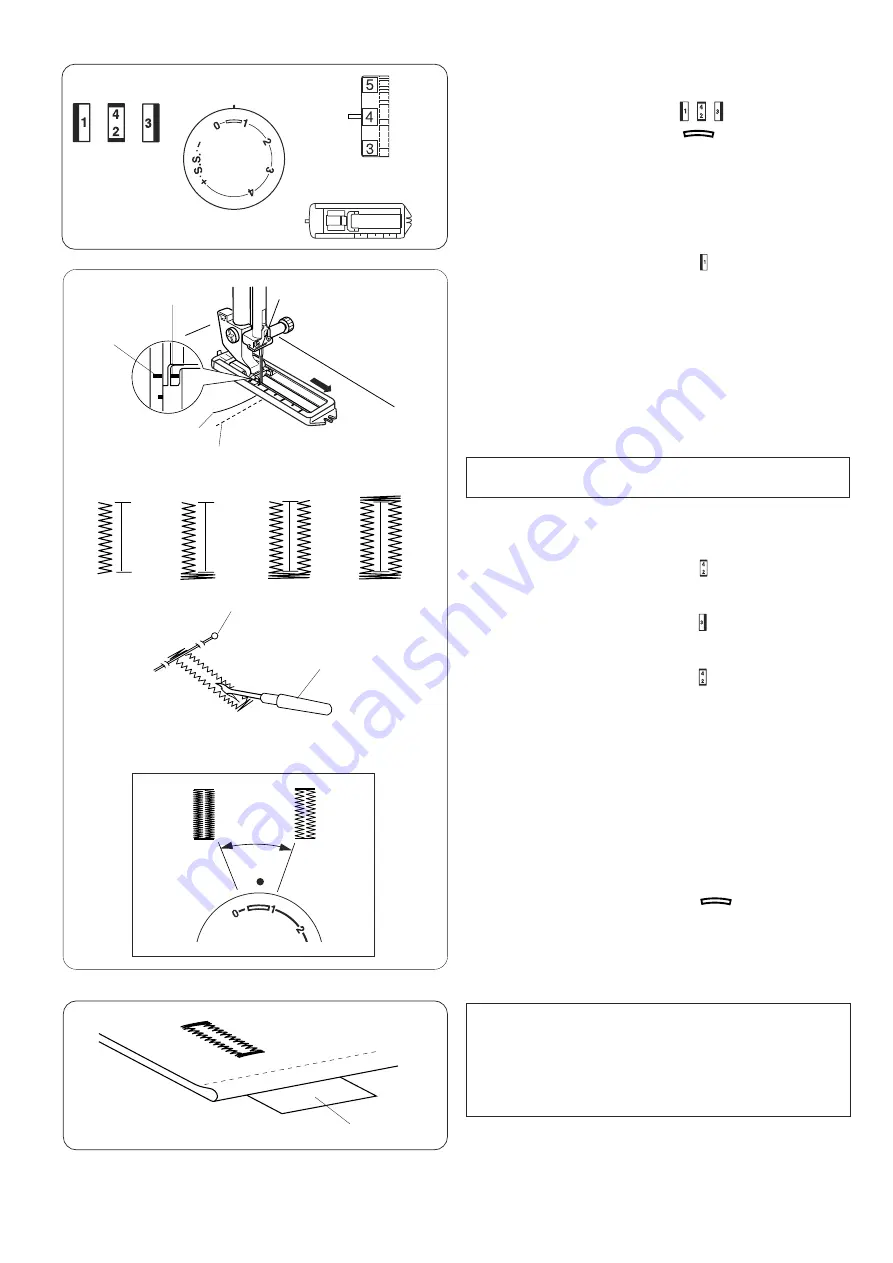
www.toews.com
21
• To sew
z
Set the pattern selector dial at “ ”.
Carefully mark buttonhole length on fabric.
Place the fabric under the foot with the buttonhole
marking running toward you.
Draw both the needle and bobbin thread to the left.
Move the slider toward you so that the top mark
w
on
the lider meets the start mark
q
.
q
Start mark
w
Top mark
e
Needle thread
r
Bobbin thread
c
Raise the needle to its highest position.
Set the pattern selector dial at “ ”. Sew 5 stitches,
then stop sewing at a right stitch.
v
Raise the needle to its highest position.
Set the pattern selector dial at “ ”. Sew until the
needle reaches the back marking of the buttonhole.
b
Raise the needle to its highest position.
Set the pattern selector dial at “ ”. Sew 5 stitches,
then stop sewing. Set the stitch length dial to “0” and the
pattern selector dial at straight sewing.
Sew a few locking stitches.
n
Raise the needle and presser foot. Remove the fabric
from the machine and cut the sewing thread. Insert a pin
inside the bartack.
Then cut the opening with a seam ripper.
Take care not to cut the stitches.
t
Pin
y
Seam ripper
4-Step Buttonhole
Machine setting
q
Stitch selector:
w
Stitch length:
e
Needle thread tension:
1 – 5
r
Presser foot:
Sliding buttonhole foot
• To adjust buttonhole stitch density
Set the stitch length dial between “ ” to adjust the
buttonhole stitch density.
u
Denser buttonhole
i
Coarser buttonhole
x
Sew forward until you reach the front marking of your
buttonhole. Stop sewing at a left stitch.
NOTE:
The scale on the slider is engraved in centimeters.
* For easier buttonhole foot attachment, move the slider all
the way to the front of the foot. For easier removal, move
the slider all the way to the back of the foot.
NOTE:
Place a piece of paper under the fabric when you make
a buttonhole on the edge of a thick fabric.
This prevents the fabric edge from being trapped into
the feed dog window.
q
Piece of paper
z
w
q
e
r
t
y
u
i
n
w
e
r
q
x
c
v
b
q
Janome 5812 Instruction Manual
www.toews.com
5812 Owners Manual/ User Guide

